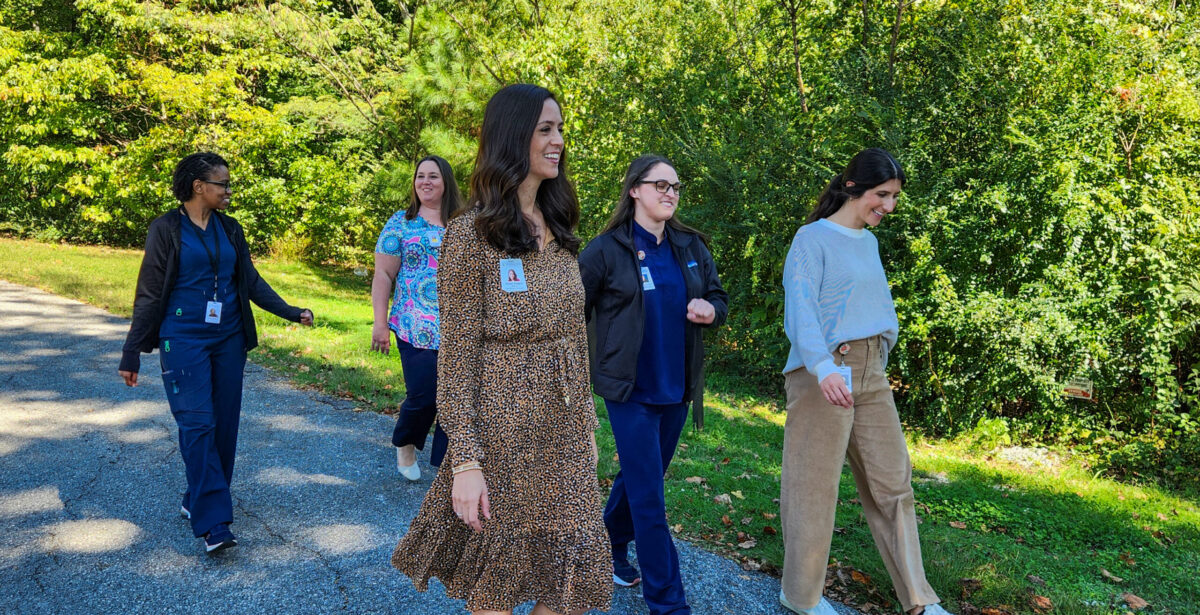Your guide to the 2020-2021 flu vaccine including incentive programs
Reading time: 6 minutes

Considering the flu vaccine? Due to the pandemic, the Centers for Disease Control and Prevention (CDC) states it is more important to get it this year than ever. Find out everything from who should get it and where to worthwhile incentive programs happening now.
What’s in the 2021-2020 flu vaccine?
Each year, a new flu vaccine comes out. And each year, the CDC, doctors and other health experts recommend it to those six months and older. Why a new flu serum every year?
Well, it’s because there are many different flu viruses and they are constantly changing. This means the flu vaccine needs to be reviewed and updated annually in order to match flu viruses circulating each year.
According to the CDC, here’s what each 2020-2021 flu vaccine will contain:
Trivalent (three-component) egg-based vaccines:
- A/Guangdong-Maonan/SWL1536/2019 (H1N1)pdm09-like virus (updated)
- A/Hong Kong/2671/2019 (H3N2)-like virus (updated)
- B/Washington/02/2019 (B/Victoria lineage)-like virus (updated)
Quadrivalent (four-component) egg-based vaccines, which protect against a second lineage of B viruses:
- The 3 recommended viruses above, plus B/Phuket/3073/2013-like (Yamagata lineage) virus.
Cell- or recombinant-based vaccines:
- A/Hawaii/70/2019 (H1N1)pdm09-like virus (updated)
- A/Hong Kong/45/2019 (H3N2)-like virus (updated)
- B/Washington/02/2019 (B/Victoria lineage)-like virus (updated)
- B/Phuket/3073/2013-like (Yamagata lineage) virus
Who should get a flu vaccine?

While prevention is key to protecting yourself from the flu, it is especially important for those who are at high risk of serious complications from flu and COVID-19.
If you fall into any of the following categories, you are considered high risk:
- Adults 65 or older
- Pregnant women
- Asthma
- Heart Disease + Stroke
- Diabetes (Types 1 + 2)
- HIV/AIDs
- Cancer
- Chronic Kidney Disease
When should I get the flu vaccine?

According to the CDC, you should get the flu vaccine before flu viruses begin spreading in your community. Why before? Because it takes about two weeks after vaccination for antibodies to develop in the body and provide protection against flu.
This being said, the CDC recommends getting your flu vaccine between September and October. However, flu vaccines are available throughout January, so you still have time to get it and be protected.
Where do I get the flu vaccine?

There are many places around the greater Birmingham area offering flu vaccines. Here’s where to look:
Doctor’s Office
If you’re able to schedule an appointment with your general practitioner, do so. Often times, you will be making an appointment with the nurse and won’t even need to see your doctor.
Doctors’ offices, including pediatricians, typically give shots to all family members, so everyone can get it done together in one swoop.
National Pharmacy Chains
CVS, Rite Aid, Walgreens…all of these national pharmacy chains are popular places to receive flu vaccines. One reason is because they are quick and easy. Plus, they also take walk-ins.
Whether you walk in on a whim or choose to schedule an appointment, you will need to fill out a quick form and have to wait a few minutes for your pharmacy tech to prepare your vaccine. Wait time is typically under 15 minutes, so consider shopping around the store while you wait.
Local Pharmacies + Clinics
Would you rather use a local pharmacy or clinic? There are many around the greater Birmingham area offering flu vaccines. Some include:
- American Family Care: Locations here.
- Carroll Pharmacy in Trussville: 115 N Chalkville Rd, Trussville, AL 35173 | 205.229.5198
- Double Oak Mountain Pharmacy: 5510 Highway 280, Ste 123, Birmingham, AL 35242 | 205.991.0800
- Eastwood Pharmacy: 4500 Montevallo Rd, St E 103, Birmingham, AL 35210 | 205.900.7200
- FMS Pharmacy: 1819 13th Ave N, Bessemer, AL 35020 | 205.424.3194
- Homewood Pharmacy: 940 Oxmoor Rd, Homewood, AL 35209 | 205.871.9000
- MainStreet Family Care: 300 Big Mountain Rd, Ste A, Pelham, AL 35214 | 205.644.8289
- Mills Discount Pharmacy: 6501 1st Ave N, Birmingham, AL 35206 | 205.591.7800
- Passport Health Birmingham: 4274 Cahaba Heights Court, Ste 230e, Birmingham, AL 35243 | 205.994.3152
- Payless Drugs: 2512 31st Ave N, Birmingham, AL 35207 | 205.252.4179
- Pinson Discount Drugs: 6662 Highway 75 Ste 118, Pinson, AL 35126 | 205.680.3737
- St. Vincent Urgent Care: 1944 28th Ave S, Homewood, AL 35209 | 205.408.2366
- Winn-Dixie: 2653 Valley Dale Rd, Birmingham, AL 35244 | 205.995.4960
Use this vaccine finder to discover more places offering flu vaccines near you.
Get a Flu Shot, Be Rewarded
Another reason to consider getting your flu vaccine at a pharmacy is that many offer rewards. Here are some incentives available in 2020:
- CVS: $5 off $20 purchase
- Target CVS: $5 Target coupon
- Publix: $10 Publix gift card
- Walgreens: $5 off $20 purchase
Flu vs. COVID-19

It’s a good question. After all, both are contagious respiratory illnesses; both also cause similar symptoms.
Here are some similarities and differences to note:
Causes
Flu: Caused by several different types and strains of influenza viruses. This causes different strains to circulate each year, which determines what the flu vaccine will help prevent.
COVID-19: Caused by the 2019 coronavirus (SARS-CoV-2).
How it’s spread
Flu + COVID-19:
- Droplets or smaller virus particles from a sick person can transmit the virus to other people nearby.
- Touching a surface with viruses on it, then transferring the germs to ourselves by touching our faces.
Symptoms

Flu:
- Fever/chills
- Cough
- Sore throat
- Runny/stuffy nose
- Muscle/body aches
- Headaches
- Fatigue
- Vomiting/diarrhea (most common in children and adults)
COVID-19:
- Cough
- Fever/chills
- Shortness of breath/difficulty breathing
- Muscle/body aches
- Sore throat
- Headache
- Nausea/vomiting
- Diarrhea
- Congestion/runny nose
- Sudden loss of smell
- Sudden fatigue
Prevention:
Flu: A vaccine is available and an effective method in preventing some of the most dangerous types of flu. It can also reduce the severity or duration of flu for those infected.
COVID-19: While there is currently no vaccine available to prevent COVID-19, scientists and researchers are activity working on one. Check out UAB’s latest discover toward treating COVID-19.
Flu and COVID-19:
- Wearing masks (Alabama statewide mask ordinance extended to November 8)
- Frequent + thorough hand washing
- Limiting contact with those infected
- Social distancing



